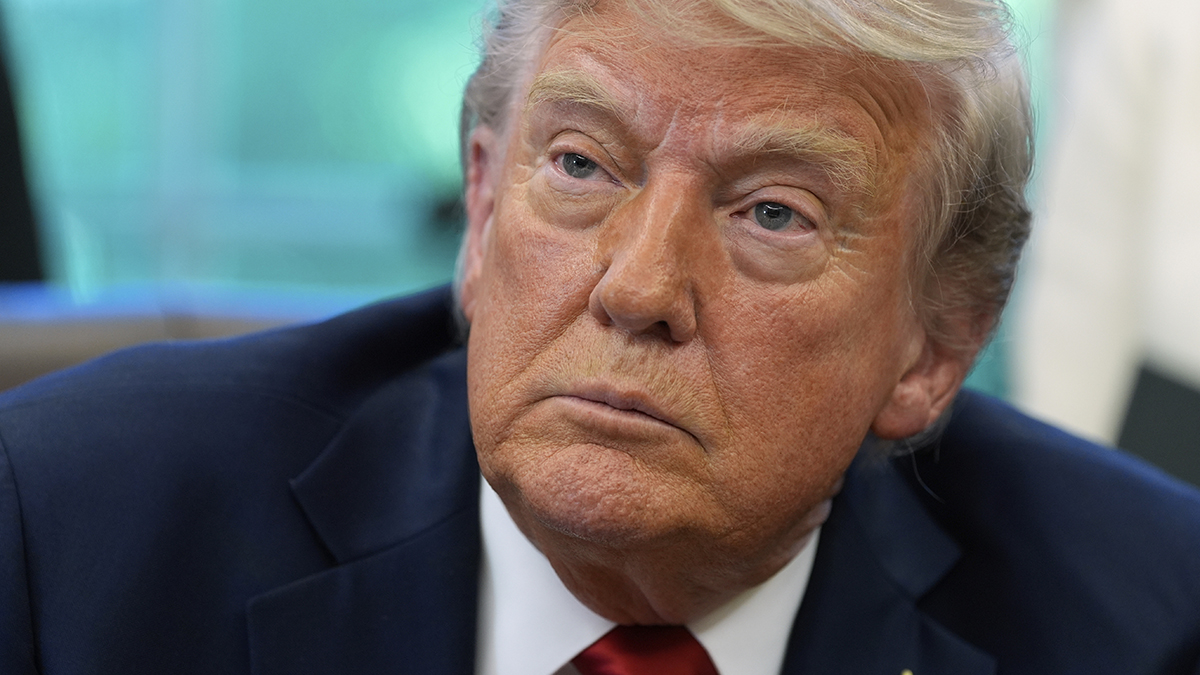Attorneys representing the family of Aaron Hernandez have re-filed their lawsuit against the NFL, removing the Patriots from the complaint.
Lawyers for Aaron Hernandez's family have re-filed their lawsuit against the NFL, but the New England Patriots are no longer named in the complaint.
The family's lawyers filed the complaint Monday in Norfolk County Superior Court. They said the Patriots have been removed as a defendant, but a separate action involving the team will be filed at a later date.
Named in the suit are the NFL and several of its subsidiaries, as well as Riddell, the company that manufactured the official NFL helmet from 1989 to 2013. Hernandez played in the NFL from 2010 to 2012.
The suit claims the defendants knew of CTE dating back to the 1960s but intentionally kept that information from Hernandez and other players. The suit accuses them of a "long-running conspiracy" aimed at insulating themselves from litigation and financial responsibility.
"(Aaron's) decisions with respect to football would have been different had there been no intentional concealment for football-exposure risk," the complaint reads. "Defendants' multi-decade-long efforts to justify ignoring these warnings created a time-bomb in Aaron. Defendants did so to perpetuate the industry of football."
Attorneys for the Hernandez family initially filed suit last month in federal court after a brain study showed he suffered from a "severe case" of the degenerative brain disease chronic traumatic encephalopathy. Experts said it was the most severe case of CTE they had ever seen in someone his age.
The suit claimed the team and the league deprived 4-year-old Avielle Hernandez of the companionship of her father.
U.S. & World
That suit was dropped on Friday because the lawyers said the issues involved belonged in state and not federal court.
The NFL has said it will "vigorously" contest the lawsuit, saying it would face "significant legal issues from the start."
Riddell said Monday that it is also prepared to defend its reputation.
"More than 15 years ago, Riddell introduced its first helmets specifically designed to mitigate concussion risk and warnings written to raise concussion awareness and promote medical treatment of concussions," the company argued in a statement. "Riddell intends to vigorously and successfully defend its products, its warnings and its reputation from the claims now being made by a handful of plaintiff lawyers."
Hernandez had Stage 3 CTE, the second-most severe out of four stages. That level of degeneration is usually found in players with a median death age of 67. Boston University officials who examined his brain said he also had early brain atrophy and perforations in a central membrane. CTE can be caused by repeated head trauma and leads to symptoms like violent mood swings, depression and other cognitive difficulties.
The 27-year-old former star tight end killed himself on April 19 in the prison cell at the Souza-Baranowski Correctional Center in Shirley, Massachusetts, where he was serving a life sentence without the possibility of parole for the 2013 murder of Odin Lloyd. He hanged himself with a bed sheet attached to his cell windows.
Hernandez blocked access to his cell from the inside by jamming cardboard into the door tracks, investigators said. They also said there were no signs of a struggle and Hernandez was alone at the time of the hanging.
His Bible was found marked with blood at John 3:16, a verse that describes eternal life for those who believe in God. The verse name was also written in blood on the wall and in pen on his forehead.
His death came just hours before the Patriots visited the White House to celebrate their latest Super Bowl victory.
Soon after his suicide, Hernandez's family decided they wanted his brain to be studied by the Boston University Chronic Traumatic Encephalopathy Center.
State officials originally refused to release the brain because it was part of the ongoing investigation into Hernandez's death, but later agreed to release it after his lawyer accused them of holding the brain illegally.
A star for the University of Florida when it won the 2008 title, Hernandez dropped to the fourth round of the NFL draft because of trouble in college that included a failed drug test and a bar fight. His name had also come up in an investigation into a shooting.
In three seasons with the Patriots, Hernandez joined Rob Gronkowski to form one of the most potent tight end duos in NFL history. In 2011, his second season, Hernandez caught 79 passes for 910 yards and seven touchdowns to help the team reach the Super Bowl, and he was rewarded with a $40 million contract.
But the Patriots released him in 2013, shortly after he was arrested in the killing of Lloyd, who was dating the sister of Hernandez's fiancee. Hernandez was convicted and sentenced to life in prison; the conviction was voided because he died before his appeals were exhausted, though that decision is itself being appealed.
SUICIDE PREVENTION HELP: The National Suicide Prevention Hotline (1-800-273-8255) is open 24 hours a day, 7 days a week.



